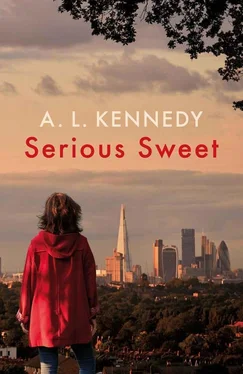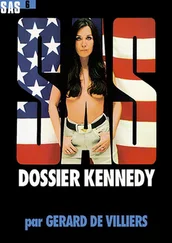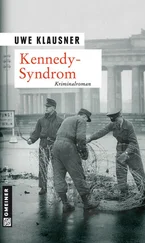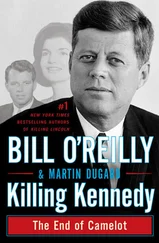Beyond Jon’s desk, the office was fully functional and apparently placid. It was purring along, if not as it should in an ideal world, then certainly as it did on untroubled days. In as far as the departmental definition of Untroubled had been subject to mission creep, through time.
But it all looked fine. Staff members came and went like nicely phrased imaginings. He had a good team. They were engaged, as they should be, in building the long, long memory that any hope for common sense required: adding to an intelligence that could consider and extrapolate, that could govern effectively, that could underpin a civilisation. Jon would seem, on sweet days, to feel the threads of various, reliable, verifiable narratives winding about him as they flowed on and this would make him happy.
I believe in reality: in the trinity of here and now and me. Not in a messianic sense. I believe these three things are connected and should be connected. I believe in the rightness of doing right things and nothing more. Not much more. In this — where else? — I can exist.
The compulsory Sunday services at Jon’s school had removed any other faiths, inner and outer. He’d had a not unpleasant speaking voice, even then, and was often asked to deliver Bible readings. That’s when he’d first noticed that he echoed — inside and out. And it was when he’d first felt the betrayal inherent in passion, too: the aftermath of nausea and uncleanness after a psalm flared up and lit him, while still being quite meaningless. It wasn’t just him, either — the homilies and sermons offered by his betters had also echoed, split open and revealed their emptiness.
And the words of my betters echo still.
He thought about turning off his mobile.
Any text will be bad news. There’s no reason for anything lovely, not really. I do hope for better, or for opportunities to be of use. What I’ll get will very probably be Sansom having another go .
My phone is not here to help me — it’s just trying to guess how I might like to spend my money. It is purring along in its way. Somewhere in its workings, in its extended pattern of thoughts, there are plans to show me other and better shirts than the one I bought this morning — that and new, breathtaking ranges of corduroy.
The back of the device was hot in his hand — the temperature of an active voyeur, I suppose, or of a readied exhibitionist. It’s seen in through my windows — now it wants to flick open its raincoat, show me an offer I can’t refuse.
He felt himself grin.
But I can forgive that. It lets a proper-words and proper-ink-and-proper-paper man, an old-school man, hold on to a solid point, hold tight and when …
Rowland passed, wearing trousers of a cut at present fashionable, which apparently aimed to highlight the wearer’s thighs and cock — his balls, even — in a manner which complimented neither Rowland nor any conceivable observer. Rowland was not unlikely to excel over time. He was a gifted Squid. He had all the necessary modern qualities.
And, I suppose, a suitably unthreatening cock — since he’s forced me to be aware of it in detail.
Jon was glad he wouldn’t be in post to witness Rowland’s triumphs.
I asked him once — he was foisted on me for a while — to Kirkaldy the figures on those possible changes to bereavement benefits between social-security-agreement countries. What precise effect would it have, for instance, if a UK citizen living in Bermuda were to be paid only the Bermudan rate of widow’s benefit, rather than the higher UK rate, which could be seen as excessive and unnecessary, given her change of circumstances and lower living costs? Yes, that individual might have made a range of tax contributions while in the UK, but now she was resident elsewhere … An argument for withdrawal of privileges could be presented as reasonable and fair.
Benefits are no longer rights, they are privileges. We are to forget prior contributions made in any capacity — we are only to regret and be shamed by our greed when we want to reclaim the promised portion of what we once allowed to be held in trust. We should, likewise, never dare to expect any payment from a private pension — that’s not what they’re for. Whatever we pay for it isn’t for us.
For Rowland, this model — of endless wrongdoing and entitlement amongst the crafty weak — was impossible not to embrace. He clearly found it incorporated types of justice that Jon could not appreciate, or indeed administer, and there was hardly a trace of cynicism about his position. Rowland was a man of faith.
We don’t have a short attention span in the modern age. It’s that we’re often bored — which is different. God knows, a great deal of what’s presented to us is second-rate, third-rate, inhuman and therefore uninvolving. Our governments, our employments and our entertainments — why wouldn’t they make us bored? They could make us incandescent, but bored is more likely.
But that isn’t the same as having a short attention span. Claiming that places the blame at the wrong end of the equation — more punishment of the victim — it’s like saying that the widow is somehow complicit in her bereavement — soiled by it — simply because it has produced the symptoms of distress and all distress is now deemed a cause for suspicion. Suffering no longer indicates hardship, it indicates bad character and celestial punishment. And if God has seen fit to punish — well, that invites further loss.
Jon checked his texts again, although there had been no indication that anything new had arrived.
What we have is a short memory. For everything. Tell the average mug punter to put a quid in the communal tin, wake him up the following morning and he’ll accept without hesitation that asking for ten pence back because he needs it would be a sin.
We forget what — historically — has worked and what hasn’t. We forget that’s a danger to us and trot on.
Jon couldn’t settle. He was relying on his forefinger to prod regularly away, control the cursor that was scrolling down the document on-screen — the one he couldn’t stand to read, and to which he would make no corrections …
I’m not like this. I’m conscientious.
Perhaps I’m ill.
My mind doesn’t wander.
Not to this degree.
I still have no idea how I feel.
Other than feeling that my mind shouldn’t wander, which is a kind of wandering.
I told Rowland — I ordered him, ‘Kirkaldy it.’ He’d never even heard the term. ‘Kirkaldy it,’ I told him. ‘Which is to say, subject it to testing according to the motto of that great Victorian and great man David Kirkaldy — Facts Not Opinions. A neglected Victorian Value, the love of facts.
‘Kirkaldy tested materials. He was a man of the real and unforgiving world where bridges collapse and engines explode and matter fails when it is needed most and kills and harms if it hasn’t been properly handled in the first place, if it isn’t fully known. He wished to establish reliability and standards …’ I smiled, truly smiled at his ocean-floor face. ‘So Kirkaldy it. Comprehensive figures, all eventualities.’
And I paused — because in the pause before the act lies all the peace and satisfaction and security of the world. Passion — yes — betrays. Pausing — yes — is wonderful. It’s the test of what’s true.
In the pause before the act, I live.
And he looked at me as if I had asked him to cut off his slimline dick and let me wear it tucked behind my ear.
Before I said, ‘Only joking. For a start, if we no longer pay their people in full, they’ll no longer pay our people in full and they’re paying our people more, relatively … And our widows and orphans still have ransom value. At present … Respect, at least in theory, for the widow — and indeed the widower — and the orphan still exists. It’s all a journey and we’re not there yet.’
Читать дальше












